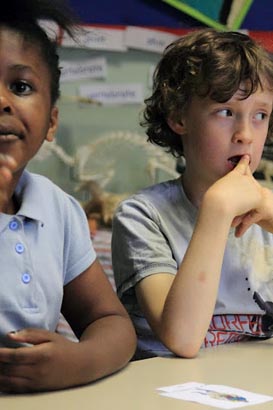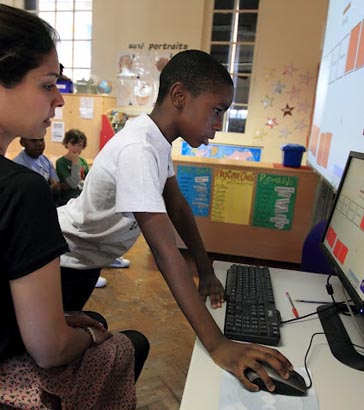
The secret to teaching mathematics successfully may be to teach it through other areas, any areas, so that maths is something that is 'interesting and relevant for pupils and enables all to participate and grow' (Higginson, 1999). The point is that mathematics is all about us, so why not teach 'all about us'?
Write down five activities that do not involve the use of mathematics in some form.
Click here to compare answers
The point about this task is that it should be impossible to think of anything that we consciously do that does not involve maths in some way - even falling asleep involves shape, space and measure, since we have to work out where we going to be comfortable enough to fall asleep, check that there's enough room and the best shape to put our bodies into.
Return

Both academics and practitioners argue that for those teaching pupils with a characteristically slow rate of learning it is defensible to 'concentrate on the basics', and that teaching maths in terms of practical, everyday situations makes it both relevant and understandable (Robbins, 2000; Stewart et al, 2000).
There are principles that must be applied to ensure that children have a chance to be successful in learning and be able to apply the basics in mathematics, which are outlined in packages in level C on mathematical thinking.

Higginson W (1999) Glimpses of the Past, Images of the Future: Moving from 20th to 21st Century Mathematics Education in Hoyles C, Morgan C and Woodhouse G (eds) Rethinking the Mathematics Curriculum. London. Falmer Press.
Robbins B (2000) Does teaching numeracy lead to mathematical learning? The SLD Experience. 26: 9-12.
Stewart D S, Mallet A, Koltonowska G, Pembleton S, Baldwin C and Evans P (2000) Mathematics for Life Long Learning. The SLD Experience. 26: 18-19.